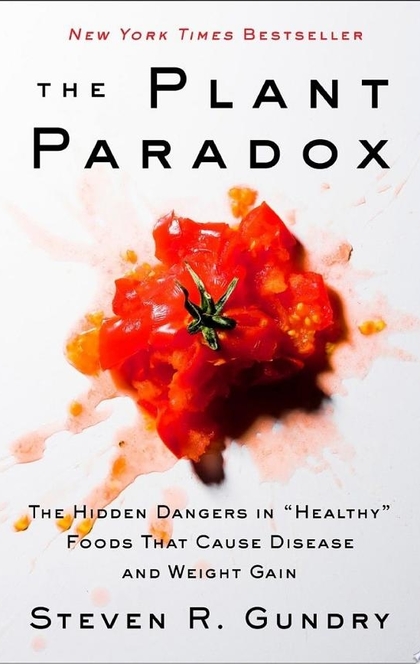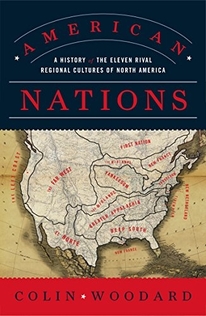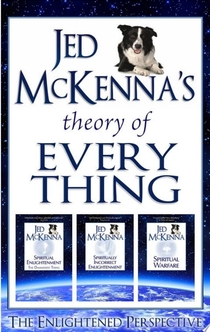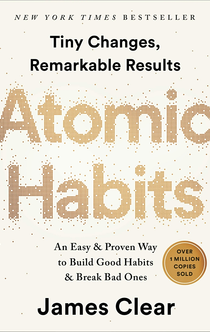
Jack Dorsey Reading List - 7 Books
Jack Dorsey
7 Books read in 2019 by Jack Dorsey. He shared his picks from his own online library. Take a look at Jack Dorsey's 7 book recommendations!
See all
0
likes

American Nations
An illuminating history of North America's eleven rival cultural regions that explodes the red state-blue state myth.North America was settled by people with distinct religious, political, and ethnographic characteristics, creating regional cultures that have been at odds with one another ever since. Subsequent immigrants didn't confront or assimilate into an “American” or “Canadian” culture, but rather into one of the eleven distinct regional ones that spread over the continent each staking out mutually exclusive territory.In American Nations, Colin Woodard leads us on a journey through the history of our fractured continent, and the rivalries and alliances between its component nations, which conform to neither state nor international boundaries. He illustrates and explains why “American” values vary sharply from one region to another. Woodard (author of American Character: A History of the Epic Struggle Between Individual Liberty and the Common Good) reveals how intranational differences have played a pivotal role at every point in the continent's history, from the American Revolution and the Civil War to the tumultuous sixties and the "blue county/red county" maps of recent presidential elections. American Nations is a revolutionary and revelatory take on America's myriad identities and how the conflicts between them have shaped our past and are molding our future.
See all

Jed Mckenna's Theory of Everything
We are programmed from birth to believe that our existence is an unsolvable riddle, but if we make an honest effort, we discover that mystery itself is the riddle. Not just what is the big mystery, but why is there any mystery at all? And what if there isn’t? What if the Mysterium Tremendum is just an internal belief without any external counterpart? What if the answers to life’s biggest questions were all hidden in plain sight?“If man will strike, strike through the mask!How can the prisoner reach outside exceptby thrusting through the wall?”Herman MelvilleThose interested in striking through the mask will welcome a theory of everything that makes sense, doesn’t rely on religious or scientific chicanery, and can be easily understood. And those familiar with Jed McKenna and the Enlightenment Trilogy will know that it’s not just a theory.
See all

The Art of Living
Epictetus was born into slavery about 55 ce in the eastern outreaches of the Roman Empire. Once freed, he established an influential school of Stoic philosophy, stressing that human beings cannot control life, only their responses to it. By putting into practice the ninety-three witty, wise, and razor-sharp instructions that make up The Art of Living, readers learn to meet the challenges of everyday life successfully and to face life's inevitable losses and disappointments with grace.
See all

God's Debris
God's Debris is the first non-Dilbert, non-humor book by best-selling author Scott Adams. Adams describes God's Debris as a thought experiment wrapped in a story. It's designed to make your brain spin around inside your skull. Imagine that you meet a very old man who—you eventually realize—knows literally everything. Imagine that he explains for you the great mysteries of life: quantum physics, evolution, God, gravity, light psychic phenomenon, and probability—in a way so simple, so novel, and so compelling that it all fits together and makes perfect sense. What does it feel like to suddenly understand everything? You may not find the final answer to the big question, but God's Debris might provide the most compelling vision of reality you will ever read. The thought experiment is this: Try to figure out what's wrong with the old man's explanation of reality. Share the book with your smart friends, then discuss it later while enjoying a beverage. It has no violence or sex, but the ideas are powerful and not appropriate for readers under fourteen.
See all

Cancer as a Metabolic Disease
The book addresses controversies related to the origins of cancer and provides solutions to cancer management and prevention. It expands upon Otto Warburg's well-known theory that all cancer is a disease of energy metabolism. However, Warburg did not link his theory to the "hallmarks of cancer" and thus his theory was discredited. This book aims to provide evidence, through case studies, that cancer is primarily a metabolic disease requring metabolic solutions for its management and prevention. Support for this position is derived from critical assessment of current cancer theories. Brain cancer case studies are presented as a proof of principle for metabolic solutions to disease management, but similarities are drawn to other types of cancer, including breast and colon, due to the same cellular mutations that they demonstrate.
See all

Atomic Habits
The instant New York Times bestseller Tiny Changes, Remarkable Results No matter your goals, Atomic Habits offers a proven framework for improving--every day. James Clear, one of the world's leading experts on habit formation, reveals practical strategies that will teach you exactly how to form good habits, break bad ones, and master the tiny behaviors that lead to remarkable results. If you're having trouble changing your habits, the problem isn't you. The problem is your system. Bad habits repeat themselves again and again not because you don't want to change, but because you have the wrong system for change. You do not rise to the level of your goals. You fall to the level of your systems. Here, you'll get a proven system that can take you to new heights. Clear is known for his ability to distill complex topics into simple behaviors that can be easily applied to daily life and work. Here, he draws on the most proven ideas from biology, psychology, and neuroscience to create an easy-to-understand guide for making good habits inevitable and bad habits impossible. Along the way, readers will be inspired and entertained with true stories from Olympic gold medalists, award-winning artists, business leaders, life-saving physicians, and star comedians who have used the science of small habits to master their craft and vault to the top of their field. Learn how to: * make time for new habits (even when life gets crazy); * overcome a lack of motivation and willpower; * design your environment to make success easier; * get back on track when you fall off course; ...and much more. Atomic Habits will reshape the way you think about progress and success, and give you the tools and strategies you need to transform your habits--whether you are a team looking to win a championship, an organization hoping to redefine an industry, or simply an individual who wishes to quit smoking, lose weight, reduce stress, or achieve any other goal.
See all

The Plant Paradox
"I read this book... it worked. My autoimmune disease is gone and I'm 37 pounds lighter in my pleather." --Kelly ClarksonMost of us have heard of gluten—a protein found in wheat that causes widespread inflammation in the body. Americans spend billions of dollars on gluten-free diets in an effort to protect their health. But what if we’ve been missing the root of the problem? In The Plant Paradox, renowned cardiologist Dr. Steven Gundry reveals that gluten is just one variety of a common, and highly toxic, plant-based protein called lectin. Lectins are found not only in grains like wheat but also in the “gluten-free” foods most of us commonly regard as healthy, including many fruits, vegetables, nuts, beans, and conventional dairy products. These proteins, which are found in the seeds, grains, skins, rinds, and leaves of plants, are designed by nature to protect them from predators (including humans). Once ingested, they incite a kind of chemical warfare in our bodies, causing inflammatory reactions that can lead to weight gain and serious health conditions.At his waitlist-only clinics in California, Dr. Gundry has successfully treated tens of thousands of patients suffering from autoimmune disorders, diabetes, leaky gut syndrome, heart disease, and neurodegenerative diseases with a protocol that detoxes the cells, repairs the gut, and nourishes the body. Now, in The Plant Paradox, he shares this clinically proven program with readers around the world.The simple (and daunting) fact is, lectins are everywhere. Thankfully, Dr. Gundry offers simple hacks we easily can employ to avoid them, including:Peel your veggies. Most of the lectins are contained in the skin and seeds of plants; simply peeling and de-seeding vegetables (like tomatoes and peppers) reduces their lectin content.Shop for fruit in season. Fruit contain fewer lectins when ripe, so eating apples, berries, and other lectin-containing fruits at the peak of ripeness helps minimize your lectin consumption.Swap your brown rice for white. Whole grains and seeds with hard outer coatings are designed by nature to cause digestive distress—and are full of lectins.With a full list of lectin-containing foods and simple substitutes for each, a step-by-step detox and eating plan, and delicious lectin-free recipes, The Plant Paradox illuminates the hidden dangers lurking in your salad bowl—and shows you how to eat whole foods in a whole new way.
See all






